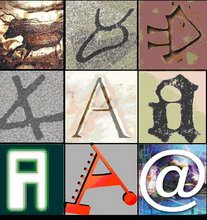If interested, please contact Dr. Kavoori listed below.
CALL FOR PAPERS FOR THREE EDITED BOOKS (Edited by Andy Kavoori,
Grady College, University of Georgia, Athens, GA)
Book 1: Gaming: An International Communication Perspective
This edited book will address Gaming
(video, on-line, single/multipleplayer) by
examining its sociological relevance from
a global perspective (most current
books have an American focus).
Papers should examine one or more of the
following topics:
(a) History: Growth of gaming as a global industry,
discourse and media product
(b) Representation: How gaming environments construct
the world (this could be for example,
a textual/content analysis of games that
are international in content)
(c) Politics: The political universe of Games.
Of special interest to the editor are case
studies of Gaming and War/Terrorism
(especially games like America's Army and Islamogames)
(d) Theory: Stand-alone theoretical essays that
frame the field of Gaming using international
communication theory (for example, political
economy, cultural studies, post-
colonial studies, globalization theory).
Please send abstracts by March 30th to
akavoori@yahoo.com and put in
the subject line "abstract for international gaming book."
Book 2: The Digital Culture Reader
This edited book will examine the
discursive content of on-line mass
mediated digital culture.
Essays are invited for four sections of the book which
will be focused on (a) Stand alone theoretical
essays on the subject of "digital culture"
defined within the fields of digital cultural studies,
technology studies, sociology/anthropology,
and media studies. Essays examining institutional
development, historical context, and international
import are especially welcome.
(b) Essays on the "texts" of You Tube
(b) Essays on the "texts" of My Space and Facebook
and (c) Essays on the "texts" of Second Life. The
methodological approach may include content,
textual, rhetorical, discursive, ethnographic
and other methods commonly used in digital cultural
studies. Some specific questions that the
textual analysis essays might address
include:
(1) What happens to questions of identity politics
(race, class, gender and sexuality)
in the constructs of Youtube, Facebook/MySpace and Second
Life?
Does digital culture move the debate about identity politics beyond the
big
four
(race, gender, etc) and construct new hybrid/virtual/idiosyncratic
vocabularies
for the presentation of identity politics?
(2) Does the digital imagination (the process of creating consumer
generated
content) reconfigure questions of democracy, citizenship, entertainment
and
representation?
(3) What are the ranges of discursive constructs across cultural /
national
and
global contexts? Studies that examine non-western digital content on
the
above
websites are especially welcome.
Please send an abstract by March 30th to akavoori@gmail.com and put in
the
subject line "abstract for digital culture book."
Book 3: Journalism/Gaming: Mapping the Intersection
This edited book seeks to bring together two of the most important
contemporary industry trends—the rapidly changing nature of digital
journalism
and the world of Gaming, both centered on youth culture, practices and
politics.
The two industries have historically been seen as separate —with
traditional
mass media journalism, positioned as a place where the serious work of
citizenship takes place and Gaming seen as a vehicle for
consumption—and for
its critics, a discursive dead end focused on violence and pleasure.
Both
industries have a very specific orientation youth culture—Gaming is
at the
heart
of youth culture; traditional journalism appears to have little
resonance
with
young people.
This book takes as its goal the articulation of a theoretical,
empirical and
political vision that argues that Journalism and Gaming need to be
engaged –
that new genres, modes of participatory culture, political action and
ideas
about
citizenship need to be strategized in order to make such a connection
possible.
To that end, the collection seeks essays that (a) articulate the terms,
conditions
and theoretical frameworks that may be usefully applied in "mapping the
intersection" between Journalism and Gaming. The editor is especially
interested
in essays that apply theories of one field onto the other, i.e.
theorists of
Journalism writing essays about Gaming and theorists of Gaming
examining
Journalism. (b) Case studies of Games (video, on-line, single,
multiplayer)
where
"Journalism" broadly defined is taking place—this may include studies
of the
use
games that build on contemporary news events or use of games such as
"Palestine" (c) cross-cultural and global trends in the use of
Journalism/Gaming,
especially as they relate to issues of media and war/Terrorism. (d)
Media
education projects that emphasize the connections between these two
industries.
Please send an abstract by March 30th to akavoori@hotmail.com and put
in the
subject line "abstract for journalism/gaming book".
TIME LINE: Once abstracts have been collected, a formal proposal will
be
submitted to leading scholarly publishers (the editor has long-standing
relations with a number of publishers and has initiated negotiations).
Full
papers will be sought from selected contributors once contracts have
been
signed (approximately, mid fall, 2008).
EDITOR BIO:
Anandam (Andy) Kavoori is an Associate Professor in the Grady
College
of
Journalism and Mass Communication at the University of Georgia,
Athens, GA, USA. His co-edited books include The Cell Phone Reader
(Peter
Lang), Media, Terrorism, Theory (Rowman and Littlefield), The Global
Dynamics
of News (Ablex) and Global Bollywood (New York University Press). He is
the
author of Thinking Television (Peter Lang).
Andy Kavoori, Ph.D
Grady College of Journalism and
Mass Communication
The University of Georgia
Athens, GA 30602
akavoori@uga.edu
Andy Kavoori, Ph.D
Grady College of Journalism and
Mass Communication
The University of Georgia
Athens, GA 30602
akavoori@uga.edu
Assinar:
Postar comentários (Atom)


Nenhum comentário:
Postar um comentário